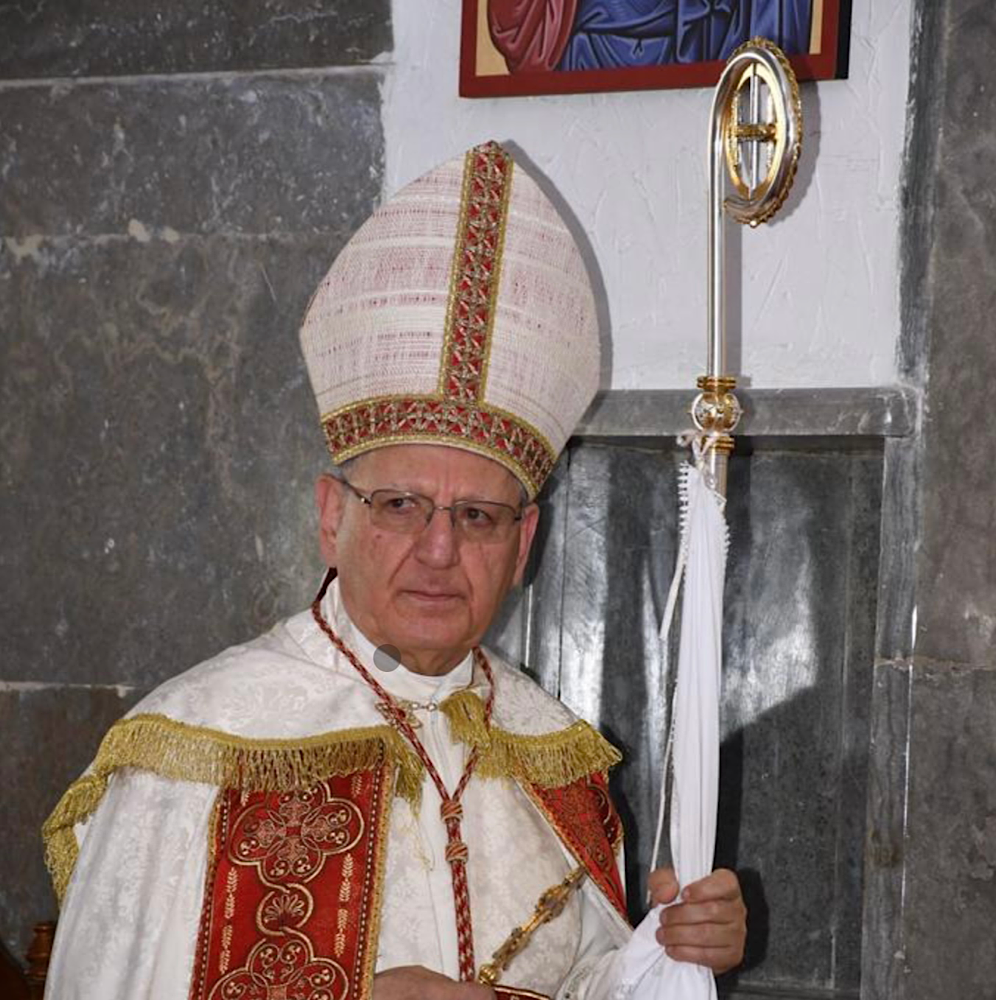Patriarch Sako says decree withdrawal reveals 'bitter struggle' between 'chaos and law'
The Cardinal addresses President Rashid's decision to cancel the recognition of the role of patriarch. He speaks of a "moral assassination" and defines the transfer from Baghdad to Erbil as an "extreme protest". Journalist from Mosul confirms the use of houses and churches by ISIS as detention centres.
Erbil (AsiaNews) - "A bitter struggle" is underway in Iraq between those who are trying to establish a sovereign state founded "on institutions, law and justice" and those who are fighting "to perpetuate chaos and displacement" with the sole goal of "strengthening one's influence".
On the eve of the feast of the Assumption the patriarch of Baghdad of the Chaldeans, Card. Louis Raphael Sako, opened a new chapter in the hard battle of the Christian community which sees its very survival threatened.
In recent weeks, the cardinal transferred (temporarily) the patriarchal see from the Iraqi capital to Erbil, in Iraqi Kurdistan, in response to the cancellation by the President of the Republic of the decree recognizing his role and authority.
It was "unprecedented" in the history of the country, as underlined by the patriarch himself, who defined the withdrawal of the decree as a "moral assassination" in response to which the Chaldean leaders transferred the headquarters as an act of "extreme protest".
A surprise decision by the head of state Abdul Latif Rashid, who by disavowing a centuries-old tradition ends up striking the country's highest Catholic authority, which is also responsible for the management of ecclesiastical assets and properties.
This is the crux of the question: the control of the properties that have ended up in the sights of the self-styled Christian leader "Rayan the Chaldean" and of the pro-Iranian militias who support him (a variegated galaxy that includes Shiites, Christians, Sunnis, etc.), threat to peace and coexistence for the whole nation. In response to the attacks, Patriarch Sako has also called for a boycott of the upcoming elections.
Speaking of the president's act, Patriarch Sako speaks of "flatterers" who led him to believe he had the power to "revoke or modify decrees". In reality, he continues, "there is no reference in the Constitution" to powers of this nature and, for this reason, he hopes that future collaborators will be chosen "with care and attention", from among "loyal and honest, non-opportunists" they work to divide and fuel conflict and confusion.
Emphasizing that he has found in Erbil and Iraqi Kurdistan a "safe and dignified" place to protect the Christian community itself in the first instance, the cardinal attacks "corrupt people" who aim for "money" and who feel "pleasure" in burying " rights, freedoms and dignity”.
Patriarch Sako's fight against the attempt to weaken, if not empty the very essence of the Christian presence in Iraq comes nine years after the great flight of the minority from Mosul and the Nineveh plain towards Iraqi Kurdistan due to the advance of the state Islamic.
In August 2014, the jihadists of Isis conquered a large part of the north of the country and forced hundreds of thousands of people into exodus, or into slavery, to spread their beliefs with weapons and beheadings.
Recently, further confirmation of the use of Christian houses and churches expropriated by the militiamen in the name of Mohammed as centers of detention and torture has arrived from the first-person account of a journalist from Mosul.
The Cardinal observed: "Currently in Iraq, the state is not as powerful as it should be, justice and equality are far from achievable, this situation allowed some people to take what is not theirs, and “mafias” to underestimate the laws and public money. Ask the peaceful Christian inhabitants of the towns of Nineveh Plain about militias harassment and how they deprive their freedom. They submitted their complaint to the Prime Minister Al-Sodany during his visit to the town of Qaraqosh. All the above is leading to the elimination of what is left of the Iraqi identity, its sovereignty, and its Christians."
The patriarch concludes by defining the decision of the President of the Republic as "suspicious", who hypothesizes an "agreement" between the head of state and whoever "used it to withdraw my decree. I invite you all to pray these days for Iraq to regain its integrity, and for Iraqis to recover their confidence in their homeland, security, freedom and dignity.".
22/08/2023 10:18
11/04/2024 18:22
25/07/2019 14:48







.png)










